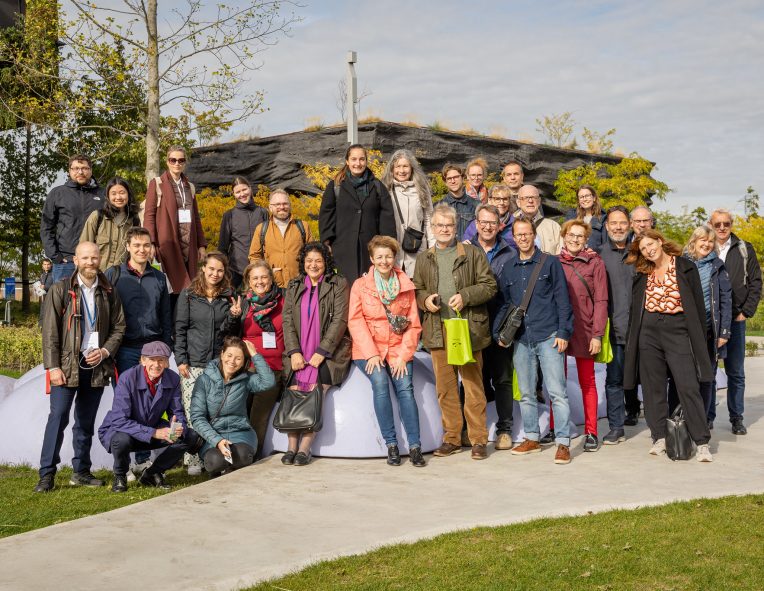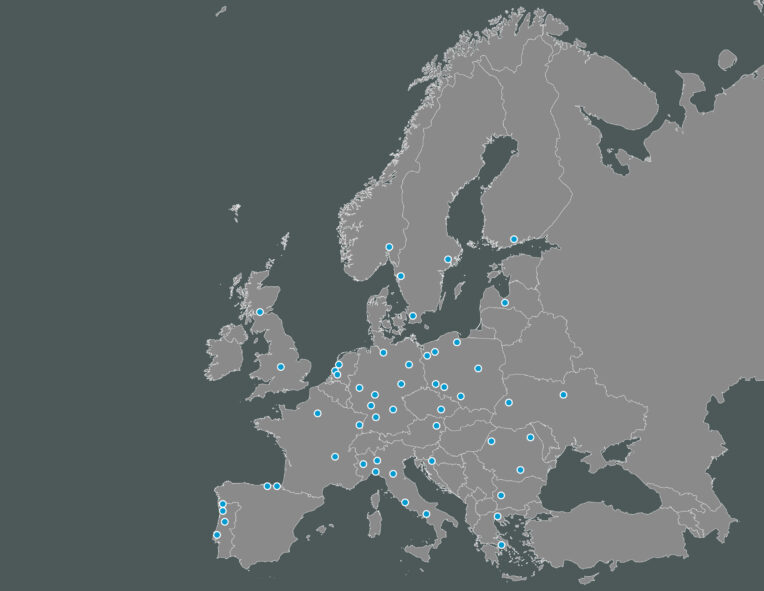00187 - Roma
Primary METREX contacts
About Città Metropolitana di Roma Capitale
The Metropolitan City of Capital Rome is a local government authority comprising within its borders the territory of the City of Rome and 120 other municipalities. With more than four million people living and working in an area of over five thousand square kilometres, it is the largest metropolitan city of Italy.
The area is the centre of a radial network of roads starting from the City of Rome, which roughly follow the lines of the ancient Roman roads, and four motorways that add up to a motorway ring road around the Capital. It is the most important rail transport hub of Central Italy, counting Roma Termini station, the second largest railway station in Europe, and Tiburtina station, a major high-speed rail station and a cutting-edge intermodal node.
The intercontinental Leonardo da Vinci airport in the City of Fiumicino is the largest airport in Italy by number of passengers and one of the largest ones in Europe, in addition to being the second largest Italian cargo airport. The primary harbour of the territory is the seaport of Civitavecchia, an important hub for the maritime transport of goods and passengers in Italy and one of the main cruise ports of the Mediterranean.
The main administrative functions concern land use planning, mobility and transport, environment, road network and secondary school maintenance.
Major projects
Labelscape
The Interreg Med Labelscape project aims to develop mechanisms for integrating sustainability labels in tourism policies at national, regional and local level as well as to provide support for destination-based initiatives in the certification process, which is one of the most effective instruments that positively address the challenges of improving the quality of the tourist offer, the need to strengthen cooperation between tourism providers and local communities, and the necessity to communicate with visitors.
The project is not creating a new sustainability label but rather capitalising the certification initiatives and addressing the challenges of certified destination and businesses, such as increased recognisability, complementarity with user generated content and digital transformation.SMART-MR
SMART-MR is a European project funded by the Interreg Europe program that supports local and regional authorities in eight European metropolitan regions to improve mobility policies and aims to provide sustainable measures for achieving resilient low-carbon transportation and mobility in metropolitan regions.
The project contributes to the Europe 2020 goals, the cohesion policy and the Interreg Europe Program by aiding managing authorities as well as regional and local authorities in setting new transport and mobility policies. In particular, metropolitan regions will prepare and implement action plans to improve the implementation of transport policies in their respective regions.
Read moreUrbanWINS
UrbanWINS was European project funded by the Horizon 2020 Research and Innovation Program that studied how cities consume resources and products, and how they eliminate the waste produced, to develop and test innovative plans and solutions aimed at improving waste prevention and management.
The project analysed current strategies for waste prevention and management in a total of 24 cities and assesseed how they contribute towards resilience and resource efficiency. The project followed the urban metabolism approach, in which cities are considered living organisms that use natural resources and create a flow of materials and energies. The results were used to define objectives and indicators of the Strategic Plans for Waste Prevention and Management in eight pilot cities.
The participatory approach was an added value of UrbanWINS, as the vision of all relevant players, mainly through face-to-face and online urban agoras, was considered to co-develop new strategies and co-test innovative solutions that are transferable to other urban contexts.
Read moreENERJ
ENERJ (Joint Actions for Energy Efficiency) was an Interreg MED modular project that aimed at enhancing and improving the coordination of Sustainable Energy Action Plans (SEAPs and SECAPs) and other relevant Energy Efficiency Plans. The project developed and tested a methodology for increasing cooperation among public authorities through Joint Actions transferring the most promising methods in the partner regions.
Read moreI-Speed
The I-Speed project aimed to foster the competitiveness and sustainability of the tourism sector by improving regional and local policies, cooperation and dialogue between public and private sector, and increasing know-how between partners about ICT-based solutions. It identified best practices in the use of ICT-bases services in the areas of promotion, travel preparation, destination monitoring, management and enhancement of the quality of destination.



